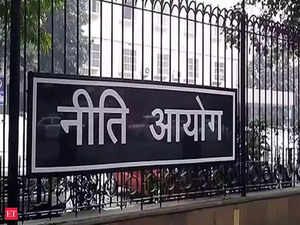 Agencies
AgenciesThe Aayog has proposed introduction of ‘Pay As You Throw’ policy which will entail a waste collection fee from the waste generator in proportion to the total quantity of waste being disposed of.
“Waste generators will be incentivized to segregate, treat and dispose-off waste at source, leaving a smaller amount to be handed over to the municipal system,” it argued.
India generates about 49.8 million tonnes of solid waste annually while globally over annual waste generation is pegged at two billion tonnes. This is expected to grow to 3.4 billion tonnes, which is an increase of 70% by 2050.
Further, the Aayog has suggested that private operators of landfills should be incentivized to minimize landfill dumping if the duration of their landfill operation permit is determined by airspace available in the landfill, and not on number of years of operation.
“This will, on the one hand, encourage waste recovery, and on the other it will incentivise waste minimization and segregation in the upstream of the solid waste collection system,” the Aayog said in its report on Promoting Behaviour Change for Strengthening Waste Segregation at Source.
As per the report, the government should adopt a green public procurement policy that can be a powerful catalyst for promotion of recyclables. “Mandatory or preferential procurement of products that have recycled waste content above a prescribed threshold may be considered for adoption,” it said.
Citing the example of a mandatory recycling content as in the National Policy on Biofuels which prescribes a 20% blending mandate for biofuels with fossil-based fuels by 2025, the Aayog has suggested a similar end-of-pipeline target in the form of a minimum percentage of recycled material content in identified products.
“It has potential for strengthening the market case for utilisation of segregated waste, thereby incentivising source segregation,” it said, adding that the recycled content targets may also help reduce input cost of products that substitute expensive virgin materials with cheaper recyclables as raw material.
Download The Economic Times News App to get Daily Market Updates & Live Business News.
Subscribe to The Economic Times Prime and read the ET ePaper online.
Download The Economic Times News App to get Daily Market Updates & Live Business News.
Subscribe to The Economic Times Prime and read the ET ePaper online.









 Get Unlimited Access to The Economic Times
Get Unlimited Access to The Economic Times
